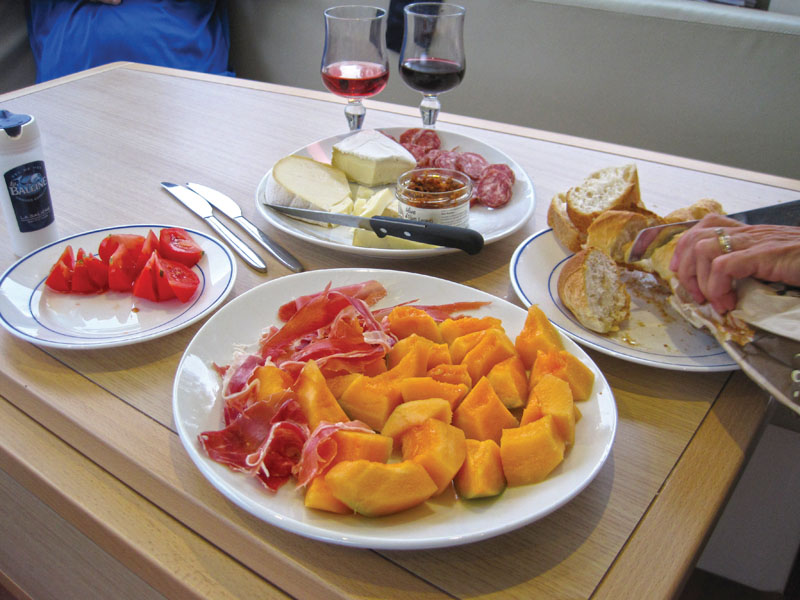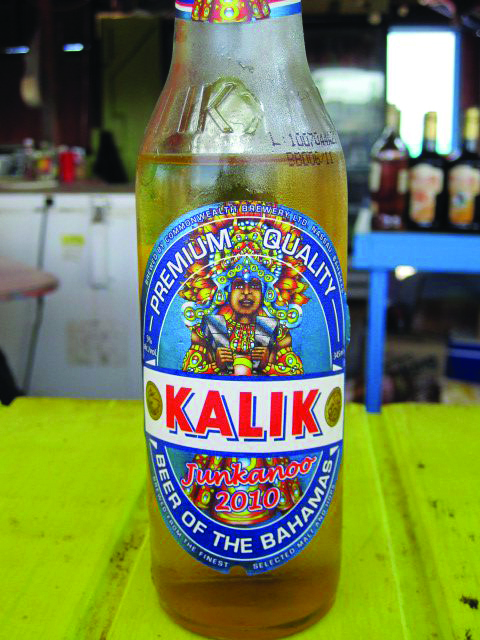What to eat on a charter sailing trip
Provisioning for a charter boat outing is an art, and the skill it takes to do it right shouldn’t be underestimated. Lists and meal planning will help, but you’ll also need to make smart individual choices to eat well for less on charter. Let’s see what works best.

Yogurt vs. milk
For a healthy breakfast or snack, you can’t beat yogurt which can also substitute for milk in cereal. Choose large tubs rather than single-serving containers that pile up in the trash. If you do need milk for your coffee, choose the long-life version. It may not taste quite like fresh milk, but it keeps well and is much cheaper in other countries.
Cabbage vs. lettuce
Cabbage is more versatile and hardy than lettuce. You can use it in salads or make coleslaw, it doesn’t have to be refrigerated, and it will last a week even in the tropics.
Apples and oranges vs. delicate fruit
Choose fruit that can take a voyage. Apples and oranges are great for snacking or happy hour. They keep at least a week without refrigeration unlike berries or peaches that will rot quickly.
Fruit juice vs. soda
Fruit juice works hard on charter as a breakfast beverage and cocktail mixer. Juice in vacuum-sealed boxes doesn’t have to be refrigerated until you’re ready to use it. It also stores well in small spaces and is less expensive than soda or tonic.
Local vs. imported
Be adventurous, and try local brands to save money. Local yogurt, tuna, cereal, and cheese are often delicious and cost a lot less than imported versions.
Happy hour fare vs. big dinner tabs
Stock up on cheese, salami, crackers, and veggies such as carrots and cucumber that all work for both lunches and happy hour food. A hearty happy hour aboard before going out to dinner will save you money at the bar and restaurant later. Sometimes a heavy happy hour turns into dinner, and it’s a meal that makes everyone happy.

Alcohol
Two ways to save on your onboard bar bill are to: 1) stock up on duty-free alcohol during your flight, and 2) drink like a local. Choose rum in the Caribbean, tequila in Mexico, wine in Europe and Tahiti, and so forth. Every country has a brand of beer (sometimes two), so unless you have a particularly discerning crowd, opt for local Tahitian Hinano over imported Sam Adams, and you’ll save a bundle.
Skip bananas and grapefruit
Here are two items you may want to leave off the vessel. If you’re at all superstitious, leave bananas off the boat because they presumably bring bad luck. Even if you don’t subscribe to this way of thinking, bananas often ripen at the same time and attract fruit flies before the crew can consume them. Grapefruit is wonderful to eat and to juice as a cocktail mixer, but many people take medications that don’t mix well with this fruit; so unless you know your crew’s dietary needs inside out, skip the grapefruit.
Sundries
Think beyond food and make a list of non-edible necessities for the week. Charter companies usually have a starter pack of goodies like dish soap, matches, toilet paper, trash bags; and so on. It’s best to supplement with the following:
- More paper towels which can be used for cleanup as well as napkins.
- More tall trash bags because double bagging is necessary–really.
- Small trash bags for toilet paper that doesn’t get flushed down the head.
- Aluminum foil that works in the oven, on the grill, and in the fridge for leftovers.
- Grill lighter because the supplied matches usually don’t work and are just about useless for the BBQ.
- Kitchen sponge that will work on pots and pans which is almost never found on a provisioning list.
- Cable ties (ZipTies) that work on everything from a broken oven door latch to attaching a flag.
- Electrical tape which can be used to fix wiring, tools, gear, or even shoes that are coming apart.
Unless your cruising grounds are really remote, don’t provision for every meal at the start. First, your crew will be tempted to try local eateries, so you’ll have lots left over. Second, you’ll want to shop where you stop for a day—especially in Europe. When you shop small and often, the food is fresher, the choices are more interesting, and you won’t need to refrigerate as much at one time.
If all this sounds daunting, appoint a chief provisioning officer (CPO) whose sole focus will be to feed everyone well and affordably while arriving back at the dock with as little as possible.
Bon appétit!
by Zuzana Prochazka




